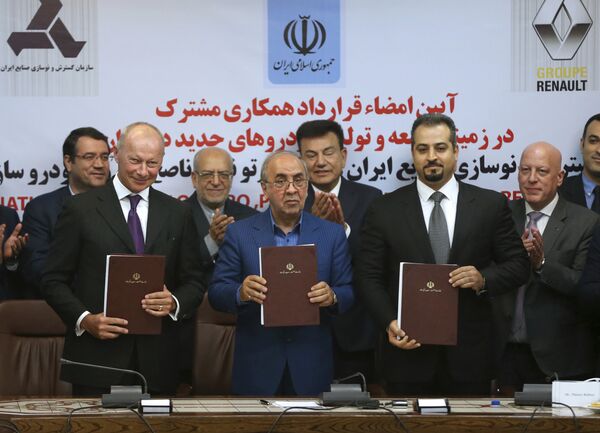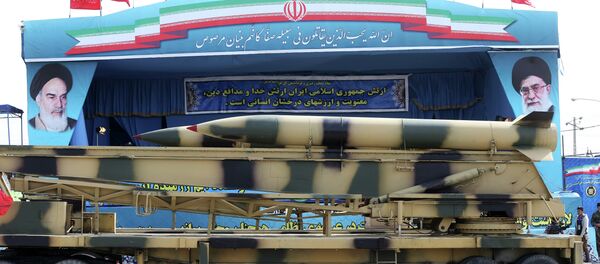On Monday, the French automaker announced that it is setting up a joint venture with Iran's Industrial Development & Renovation Organization and local dealer Parto Negin Naseh Co. to build 150,000 vehicles a year.

"The proposed joint venture company, of which Renault will be the majority shareholder, though with a first period of joint control with IDRO and Parto Negin Naseh Co, will include an engineering and purchasing centre to support the development of local suppliers as well as a plant with an initial production capacity of 150,000 vehicles a year, supplementing Groupe Renault's existing capacity of 200,000 vehicles a year in the country. The first vehicles to be produced at the plant will be new Symbol and new Duster," said the statement on the official website of the company.
The manufacturing facilities will be in Saveh, located 120 km from Tehran. They will be owned and operated by the joint venture company.
The agreements also provide for the development of an exclusive Renault distribution network, in addition to the existing network of NEGIN Khodro.
The decision to strengthen its positions on the Iranian market might be very risky due to the American sanctions against Iran, he told Sputnik.
He further recalled the case of the French BNP Paribas SA, which was fined by the US Department of the Treasury's Office of Foreign Assets Control (OFAC) for the record $8.83 billion for violation of US sanctions against Sudan, Cuba and Iran.
The move, the expert said, sent a clear message to other banks, both French (Société Générale, Crédit Agricole), and European (ING, Crédit Suisse, Deutsche Bank).
It was a traumatic experience, he said, even though the risk was more of a psychological nature. However it forces the banks to try to avoid any possible risks in their relationship with Iran, even in the operations not sanctioned by the US, in fear of losing the license in the US.
The expert further elaborated that from the political point of view, it is very hard for the Europeans to unite and defend their interests as the US imposes sanctions on the principle of extraterritoriality, or "sanctions without borders." It means that sanctions might be applied worldwide against any company or an individual who is doing its business in the US or is using American chips, servers or satellites or is making transactions in US dollars.
"This is a matter of political will and Europeans should fight for their own interests," he told Sputnik.




